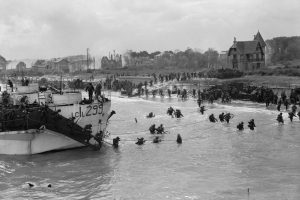By Fred Tarnasky – Medicine Hat, Alta.
I was born in a farmhouse in Bessarabia, Russia in 1939. My father was born in 1908 and my mother in 1914. I was the firstborn to my parents and had two half-siblings from my father’s first marriage. His first wife died in labour four years prior to meeting my mother.
We had a nice well-kept mixed farm, so I was later told. When Germany started the war in September of 1939, mother had sisters and brothers living in Germany. She kept in touch with them about what was happening there. They were concerned that things would not be good.
My great-grandparents on my father’s side immigrated to Russia from Germany in the 1700s to take up farming. They were offered farmland by Russia under Catherine the Great, so they emigrated from Germany and they settled there.
In 1942, my father was conscripted into the German army because he was of German descent.
Grandfather taken, land seized
The Russian army came and took my grandfather, who was 81 at the time, and living with us on the farm. They told us he was going to be taken to a senior administered residence in Russia to be taken care of. They said they would keep in touch with us, however, we never heard or saw him again and never knew whether he lived or died.
In 1942, our farm was seized by the Russian government and we were instructed to leave everything but some food and clothing. They told us we could only take enough to pack onto the covered wagon the hired hand and my mother, with three small children, built. We were to be escorted by wagon train to Germany because we were Germans living in Russia and they were at war with Germany.
The wagon train was loaded with some pork meat, canned chicken, homemade bread, and feather tick bedding. Franz, the hired hand, was in his own wagon and followed behind us to give us a hand if needed.
We were gathered at a meeting on our second day on the road. While being advised as to what was happening on the route to Germany, the hired hand stole our wagon. All our supplies and belongings were taken and we never saw him again.
Mother and us children were soon very tired and hungry. We were without food and water, except for what the others on the trail shared with us. We travelled all day and all night and made it to Germany after about a week. A German speaking Dutch family put us up for about two years.
Trip to Canada sponsored by uncle
After being wounded in the arm and leg by shrapnel, my father was discharged from the army. He found us with the help of the Red Cross. Not having seen us for over two years, he hardly knew us anymore.
One of my uncles sponsored us to come to Canada in 1948. He’d immigrated and homesteaded in Hilda, Alta., in 1920. He’d paid Canada Immigration $500 for our trip aboard the ship called Beaverbrae to Halifax.
We arrived by train from Halifax in Medicine Hat after about a week of travelling by Canadian Pacific Rail. Dad made homemade suitcases out of wood in Germany and they held all of our possessions. We came to this new country with only what one trunk and four suitcases could hold.
It was Halloween night, Oct. 31, 1948 as we pulled into the CPR station in Medicine Hat. As we all stared out the train cars and exited the train, we had no idea and had never ever heard of this celebration of Halloween.
When mother saw all the little ones running around with pillowcases dressed in costumes and begging for food, she said, “You know what? I think this country has it worse than Germany! Maybe we should have stayed.”


